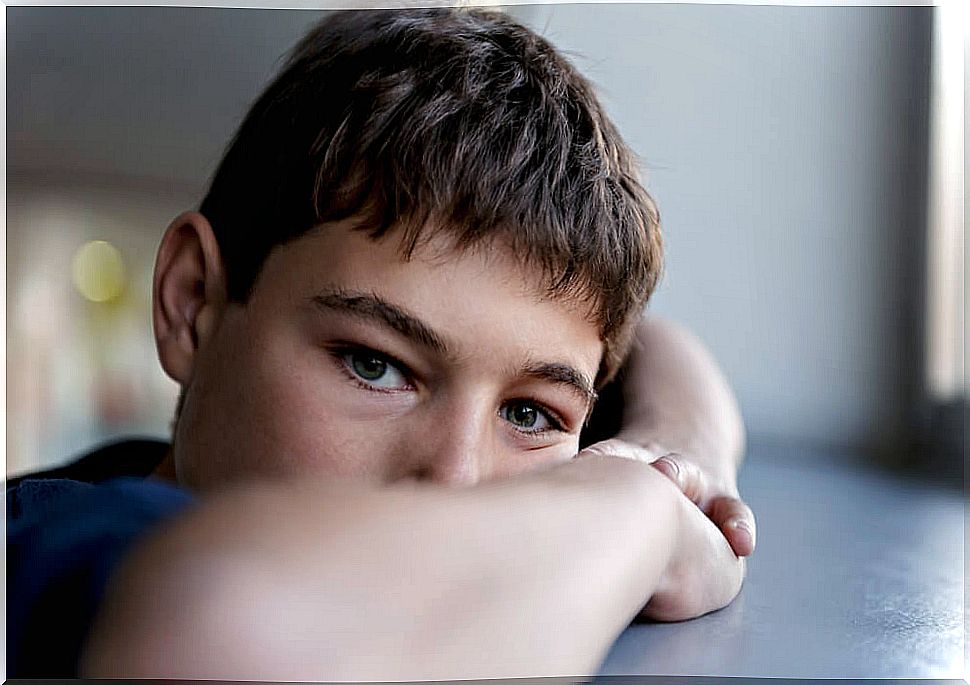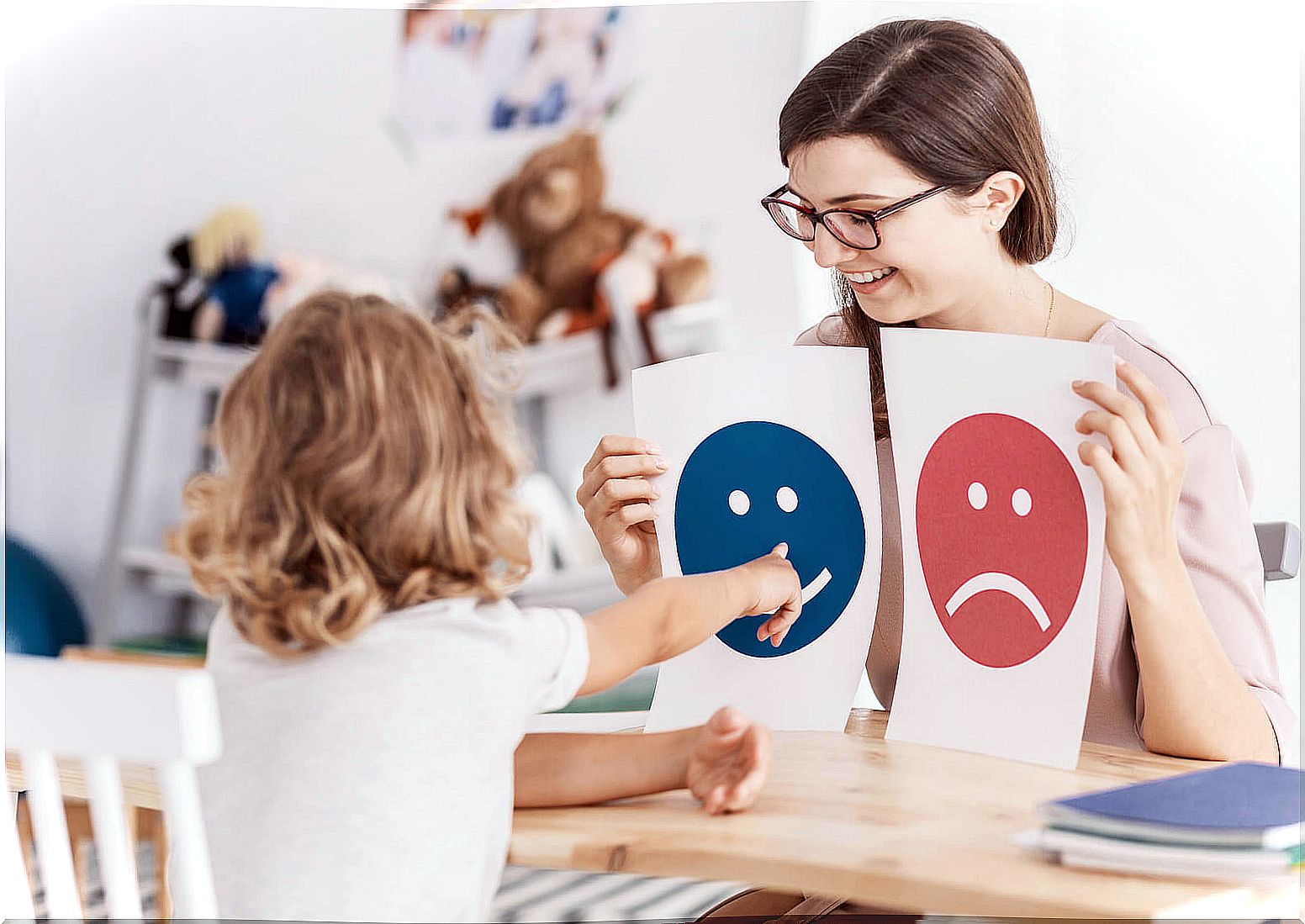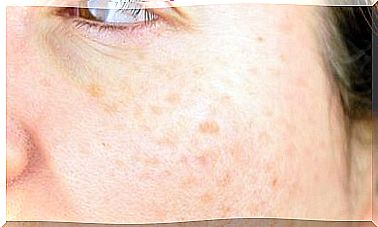Depression In Children: Causes, Symptoms And Advice
Depression is one of the most prevalent mental illnesses. Until a few years ago it was thought that only adults could suffer from it. Thanks to advances in science, we know that depression can also occur in children.
In this article we are going to review what are the causes and symptoms of depressive disorder in minors with the intention of giving some useful tips for coping. It is important to know that behavioral changes occur during the childhood stages that are not pathological, but they must be paid attention to.
Causes of childhood depression
The causes of childhood depression depend on two factors. In the first place we have the organic component; a malfunction of brain structures produces depressive states. On the other hand, there are environmental factors, such as some severe trauma in childhood.
Regarding organic causes, children of parents who suffer from depression are 2 or 4 times more likely to manifest the pathology during childhood. On the other hand, there are factors that have to do with other diseases (comorbidities). For example, children with chronic diseases could become depressed due to the condition of the clinical picture.
Warning signs of depression in children
The warning signs regarding childhood depression depend on the personality characteristics of each child, in addition to the stage of developmental development they are in. That is, if it is in early childhood (0 to 3 years), second childhood (3 to 6-7 years) or third childhood (6-7 to 12 years).
The indicators that we will see below are the most common in cases of depression in children, despite the differences that may exist between one case and another. You should always be on the lookout for these behaviors:
- Trouble falling asleep at night.
- The child does not feel capable of trying things on his own (thoughts of uselessness).
- Loss of appetite, resulting in weight changes.
- Excessive slowness in psychomotor responses.
- Constant fatigue that has repercussions in the school area.
- Trouble staying focused, with distractions and lack of enthusiasm.
- Thoughts about death, including self-harm.

Diagnosis of depression in children
To establish the accurate diagnosis of childhood depression, the criteria mentioned above must be taken into account and the presence of at least 5 of them must be assessed , intensively and for a period of no less than 2 weeks.
One of the main disadvantages that usually appear in the diagnosis is that the depressive behaviors of children could be due to other disorders, such as attention deficit hyperactivity disorder (ADHD). Or they would simply be characteristic personality traits.
It is necessary to know that a trait does not imply having a pathology. There are people with features of some disorders who are able to function properly in everyday life. It differs from the disorder in intensity and prevalence.
It is normal for children to be anxious or discouraged in certain situations, but it should not be a long-lasting behavior. Otherwise, it could be a pathology.
To find out if a child suffers from depression, it will be necessary to go to a mental health professional for an objective evaluation.
How can parents support a child with depression?
From the role of parents, measures can be taken to provide support to children when they have been diagnosed with depression. First of all, the child should not be judged or labeled that could further affect his self-esteem. For example, telling him that he is lazy or comparing him to other infants.
Instead of making value judgments about the behavior, it is best to show him how valuable he is by praising and rewards for the things he has accomplished. Good self-esteem is essential to cope with depressive states.
Other ways parents or caregivers have to support include the following:
- Maintain a structured routine in relation to the activities of the child so that he can have a sense of security and control regarding the events of his life.
- Help the child to express himself safely, ensuring that he does not feel distress when talking about his emotions and feelings. For that, it is a good idea to motivate with a personal anecdote from when we were his age.
- Incorporate fun activities for the child into your daily routine, which may vary from day to day.
- Make mealtime a pleasant moment, without forcing you to finish meals.
- Perform relaxation exercises before bedtime. Reading is a good alternative. You should also keep a consistent bedtime schedule at night.
- Practicing outdoor activities helps to improve the mood, as long as they are to the child’s liking.
What treatment options are there for depression in children?

In cases in which the child’s depressive episodes are not due to an organic disorder, caregivers can go to a psychologist for professional advice regarding the management of emotions, both for themselves and for the infant. The harmony of the family nucleus is essential to avoid childhood depression.
When depression comes from biological factors, treatment may include drugs, which must be prescribed by a psychiatrist. However, psychological support can be implemented in any of the settings.
Some of the most used treatments for childhood depression are the following:
- Psychological therapies from the cognitive behavioral approach and brief therapy.
- Prescription drug treatments prescribed by the psychiatrist.
- A combination of psychological therapy and drug treatment.
Being sad is not the same as being depressed
As we begin to use medical and psychological terms more responsibly, we will avoid anguish. In many cases parents think that their children are depressed because they see them sad on a regular basis. There the reason for the sadness must be investigated and see if it is justified.
Let us remember that because of feeling sad, a person should not be considered to have depression. Feeling sad is part of the nature of human beings since we are children and until the last moment of life.









